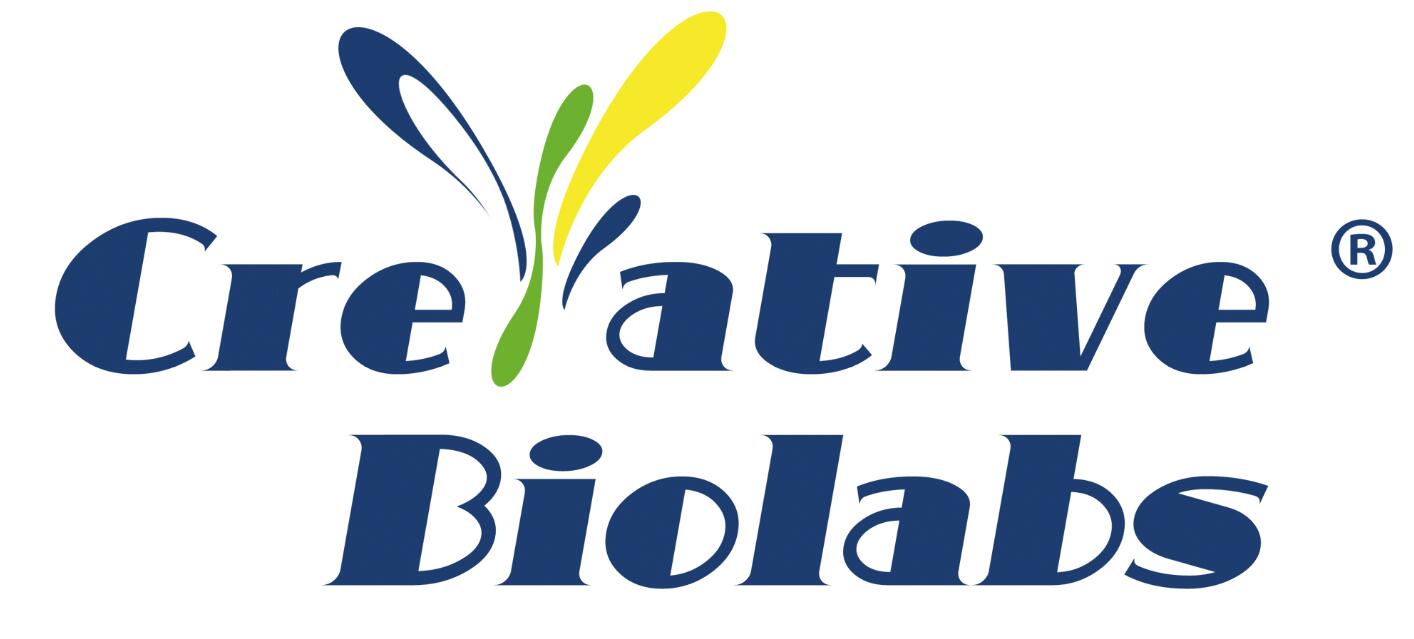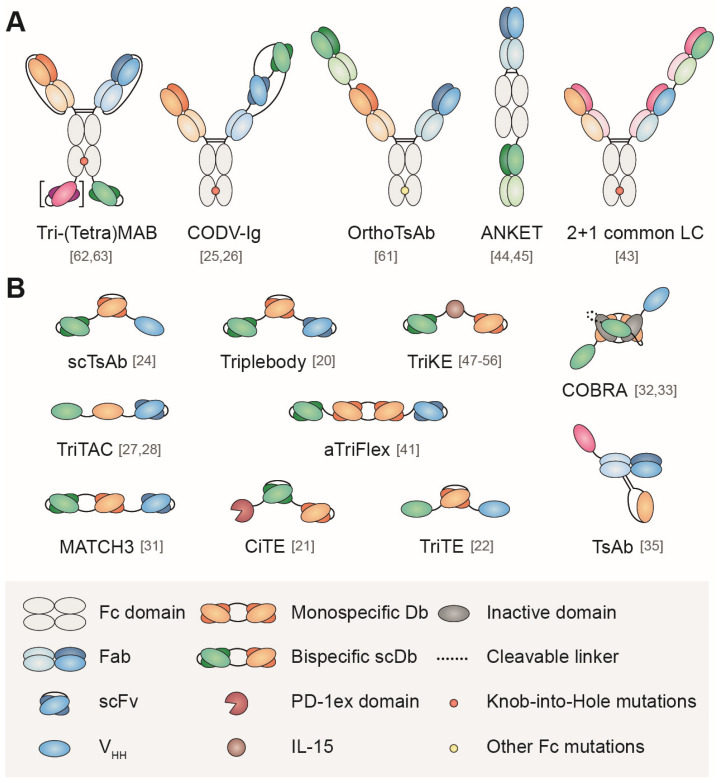Immunotherapy shines in tumor treatment. In 2021, more than 100 monoclonal antibody drugs have been approved. In addition to monospecific antibodies, the development of multispecific antibodies is also in full swing. At present, most of the dual-antibody or multi-antibody drugs are in the preclinical or clinical stage, with fewer drugs on the market and only 3 multi-specific antibodies on the market. Multispecific antibodies refer to antibodies that can bind two or more different epitopes or antigens at the same time, which can enhance the antibody’s targeting and killing effect on tumor cells. According to current clinical results, dual antibodies show better effects than monoclonal antibodies and are expected to be used as second-generation antibody therapeutic drugs.
Fig. 1 Schematic representation of some formats of multispecific antibodies with (A) or without (B) Fc domain. (Antonio Tapia-Galisteo, 2023)
Recently, Theranostics published a review article titled “When three is not a crowd: trispecific antibodies for enhanced cancer immunotherapy.” This article combines the basic principles of multi-specific antibody design, focuses on describing its cell adapters, including T cells, NK cells and targeting multiple receptors, and summarizes and analyzes the multi-specific antibodies under development.
Immune cell engagers are molecules capable of redirecting immune effector cells against cancer cells. Their purpose is to trigger effective tumor cell killing and act as a bridge between immune cells and target cells, such as by redirecting T cells against CD3, enhancing tumor specificity, or enhancing immune cell activation. Dual TAA targeting may help prevent tumor escape caused by selective pressure and may help overcome antigenic heterogeneity. There is also a class of multispecific antibodies that recognize different antigens in the same cell. For example, an EGFR-MET bispecific antibody can recognize EGFR and cMet and block their respective signaling pathways. There are also TsAbs targeting HER2/EGFR/cMet, which exhibit strong trispecific binding and whose therapeutic potential remains to be tested.
Current preclinical and early clinical data indicate that multispecific antibodies have greater advantages in increasing the potency of immune cells and targeting intratumoral heterogeneity and adverse tumor microenvironments. Certain structures of multispecific antibodies may be affected by stability, leading to fragmentation and aggregation. In addition, the production of multispecific antibodies may produce unintended by-products. These issues require optimization of multispecific antibody development protocols.
Reference
Tapia-Galisteo A, Compte M, Álvarez-Vallina L, Sanz L. When three is not a crowd: trispecific antibodies for enhanced cancer immunotherapy. Theranostics. 2023 Jan 22;13(3):1028-1041. doi: 10.7150/thno.81494. PMID: 36793863; PMCID: PMC9925307.

